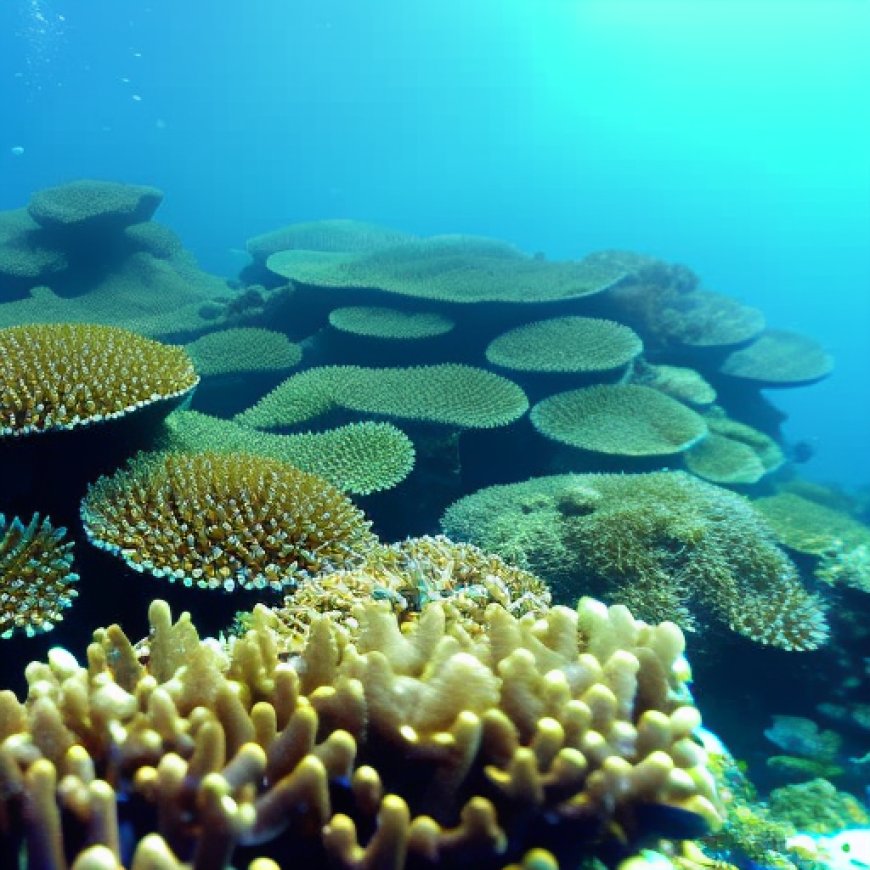Corals bred in a zoo have joined Europe’s largest reef, offering scientists hope
Corals bred in a zoo have joined Europe's largest reef. This is offering scientists hope ABC News


Corals from World Coral Conservatory Project Transferred to Burgers’ Zoo

ARNHEM, Netherlands — Just like the animals on Noah’s Ark, the corals arrived in a pair.
On Monday, divers with gloved hands gently nestled the self-bred corals from the World Coral Conservatory project among their cousins in Europe’s largest coral reef at the Burgers’ Zoo in the Netherlands.
“This is the first project where we started to keep these corals with a known origin. As we know exactly where they’re coming from, they have the potential to be placed back into the wild. … So it is very important to keep these corals, as it’s going not very well in the wild,” Nienke Klerks, a biologist at the Royal Burgers’ Zoo in Arnhem, told The Associated Press.
It’s among several projects worldwide seeking to address the decline of coral reef populations, which are suffering from bleaching caused by rising sea temperatures. Corals are central to marine ecosystems, and while these projects won’t stem the tide of damage from human-caused climate change, they are seen as part of broader solutions.
The World Coral Conservatory and Sustainable Development Goals
The World Coral Conservatory hopes to create a bank of corals in aquariums across Europe that could be used to repopulate wild coral reefs if they succumb to the stress of climate change or pollution. This initiative aligns with several Sustainable Development Goals (SDGs), including:
- Goal 14: Life Below Water – Conserve and sustainably use the oceans, seas, and marine resources.
- Goal 13: Climate Action – Take urgent action to combat climate change and its impacts.
- Goal 15: Life on Land – Protect, restore, and promote sustainable use of terrestrial ecosystems, sustainably manage forests, combat desertification, and halt and reverse land degradation and halt biodiversity loss.
Along with two zoos in France and the originator of the project — the Monaco Scientific Center — the zoo in the east of the Netherlands took in more than a dozen coral fragments from off the coast of Seychelles in east Africa.
The Dutch zoo has been propagating the corals since 2022, allowing them to grow in a highly regulated environment before they were large enough to join the rest of the reef.
“We test it behind the scenes … what works for these corals. In that way, we know where to place them and how to keep them,” zookeeper Pascal Kik said.
Each diver held up a coral — one that resembled a large mushroom, the other a decorative cookie — to be photographed by reporters before placing them on a ledge near the center of the 8-million-liter (2.1-million-gallon) tank.
Few of the other corals at the zoo come from the wild. They are either shared by other zoos or turned over by Dutch customs officers after being confiscated. Coral poaching is a major threat to coral reefs in parts of Asia.
That would make it difficult to return the corals to the wild. But the team knows exactly where their 14 corals came from, making it more likely they could be successfully reintroduced if needed.
The Importance of Coral Reefs and SDGs
Corals are a keystone marine species, according to Mark Eakin, executive secretary for the International Coral Reef Society. Eakin emphasizes that around 25% of marine animals spend some part of their lives dependent on coral reefs.
That makes projects such as the one in Arnhem all the more important to pursue, he said.
“We are in a situation where we really need to be taking any possible action we can,” Eakin told AP.
Earlier in April, scientists from the NOAA and International Coral Reef Initiative said that coral reefs around the world are experiencing global bleaching for the fourth time.
abcnews.go.com

Join us, as fellow seekers of change, on a transformative journey at https://sdgtalks.ai/welcome, where you can become a member and actively contribute to shaping a brighter future.







